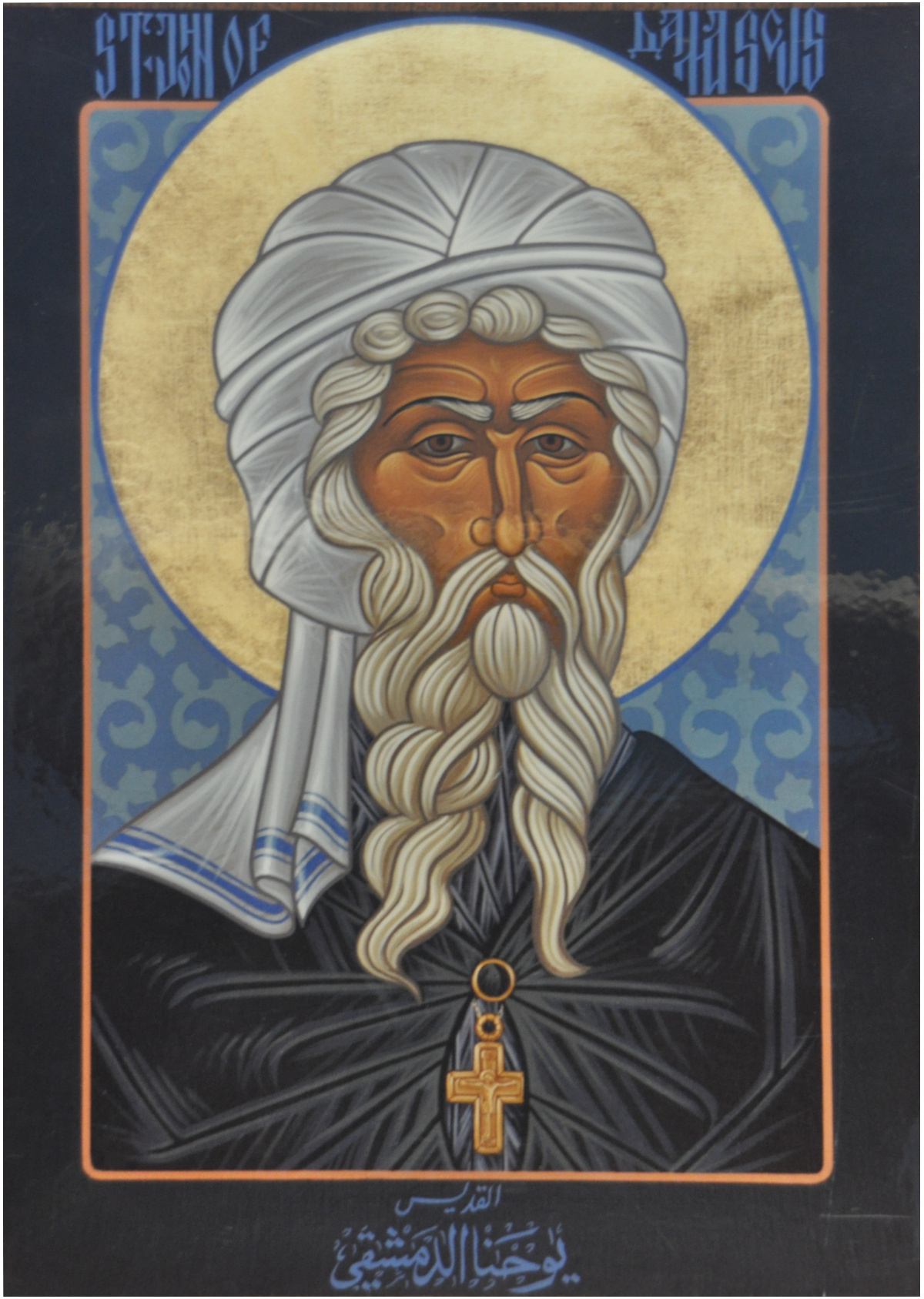“Therefore, when we speak of the divinity, we do not attribute the properties of the humanity to it. Thus, we never speak of a passible or created divinity. Neither do we predicate the divine properties of the flesh, for we never speak of uncreated flesh or humanity. In the case of the person, however, whether we name it from both of the parts or from one of them, we attribute the properties of both the natures to it. And thus, Christ—which name covers both together—is called both God and man, created and uncreated, passible and impassible. And whenever He is named Son of God and God from one of the parts, He receives the properties of the co-existent nature, of the flesh, that is to say, and can be called passible God and crucified Lord of Glory—not as being God, but in so far as the same one is also man. When, again, He is named Man and the Son of Man, He is given the properties and splendors of the divine nature. He is called Child before the Ages and Man without beginning, not as a child or a man, but as God, who is before the ages and became a child in latter times. Such, then, is the manner of this exchange by which each nature communicates its own properties to the other through the identity of their person and their mutual immanence. This is how we can say of Christ: ‘This is our God, who was seen upon earth and conversed with men,’ and: ‘This man is uncreated, impassible, and uncircumscribed.’” (An Exact Exposition of the Orthodox Faith, 3.4)
Source: Chase, Frederick H. Jr., trans. 1958. Saint John of Damascus: Writings. The Fathers of the Church. Volume 47. Washington, D.C.: The Catholic University of America Press. Pages 275-277.
Summary
This chapter of the Exact Exposition provides a crucial explanation for how Orthodox Christians may speak about Jesus Christ. In particular, it contains an explanation of what is called the “communication of idioms” (Lat. communicatio idiomatum).
St. John of Damascus begins by stating that he has already discussed the distinction between “person” [ὑπόστασις, PG.94.977A; hereafter “hypostasis”] and “nature” [οὐσία] (see Philosophical Chapters, ch. 30 and chs. 39-43). For the purposes of this chapter, this distinction is important because one can either use terms like “God” and “man” to refer to substances (or natures), or to refer to hypostases of one nature or other. The scriptural examples from St. John make this clear.
Next, St. John states that “in our Lord Jesus Christ we recognize two natures and one composite Person [μίαν δὲ τὴν ὑπόστασιν … σύνθετον, PG.94.977B] for both.” This allows us to call Christ both “God” and “Man,” or to name him from either of his two natures.
To understand the final paragraph of this chapter, excerpted above, we must understand what “predication” is.
For any statement of the form “S is P,” there is a subject term (S) of which another term (P) is predicated. So we may say, using St. John’s examples, that “Christ is created,” “Christ is uncreated,” “Christ is passible,” and “Christ is impassible” (and so on). In these cases we make predications of Christ from one or the other nature from which he is, and which are in him (cf. St. Maximus the Confessor, Epistle 15).
Now the explanation of the communicatio idiomatum begins. In addition to the types of statements above, we may also truly say that Christ is “passible God” and “crucified Lord of Glory.” That is, we may take a subject term for Christ that is taken from one nature (e.g., “God,” “this man”) and attribute to that subject term a predicate term which is taken from the other nature. To close the chapter, St. John gives an example: “This man [subject term] is uncreated, impassible, and uncircumscribed [predicate terms].”
Consider also these examples we find in St. Ephrem the Syrian:
Who indeed has seen the Babe Who is more ancient
—Hymns on the Nativity, 12.1
than His bearer? The Ancient One entered
and became young in her. He emerged an infant
and grew by her milk. He entered and became small in her;
He emerged and grew through her—a great wonder!
Whom have we, Lord, like You—
—Res 1.22
the Great One who became small, the Wakeful who slept,
the Pure One who was baptized, the Living One who died,
the King who bore disgrace to ensure honor for all!
Blessed is Your honor!

